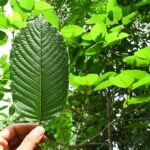
How to Save on Kratom: Insider Tips
December 27, 2019
Thailand Removes Kratom from Its Narcotics List
January 10, 2020One doesn’t have to do much to come across conflicting information on kratom. Kratom buyers state that kratom is improving their quality of life or has even saved their lives. Friendly kratom supporters join the American Kratom Association in a variety of events and petitions to keep kratom legal and accessible to buyers and regulate it with the Kratom Consumer Protection Act rather than ban it.
The Thai government that in the late 1940s banned kratom is acknowledging the beneficial properties of kratom and is considering decriminalizing it. So do some US states such as Wisconsin and Rhode Island.
Yet, the internet is also packed with information that is claiming the opposite. Various medical blogs refer to kratom as dangerous, addictive, and otherwise bad. Various organizations release inconclusive data blaming kratom for tragic outcomes when there are other, more dangerous substances present.
Sadly, we only have limited studies, such as the Kratom 8-Factor Analysis, to work with and determine who is right.
Yet, one person may change that all.
And that’s Christopher McCurdy.
Who Is Christopher McCurdy?
Christopher McCurdy, Ph.D., is a medical chemist, pharmacist, and behavioral pharmacologist at the University of Florida, College of Pharmacy. Dr. McCurdy’s research focuses on designing, synthesizing, and developing drugs that relieve pain and treat drug abuse.
For over 20 years, Dr. McCurdy has been focusing on discovering selective tools for various receptors in the brain, including the opioid receptors. He has also mentored and supervised a long list of medical students, has received numerous awards and honors, given multiple presentations, as well as contributed to various medial publications, and issued various patents, some of which are still pending.
Christopher McCurdy is also an internationally recognized expert on Mitragyna speciosa, also known as kratom.
What Does Christopher McCurdy Do in Regards to Kratom?
In December 2018, Dr. McCurdy and his team were awarded a $3.5 million 2-year grant from NIDA (The National Institute for Drug Abuse) to study kratom, its alkaloids, and their properties. Five months later, they received another grant worth $3.4 million for another five years.
As a result, the US College of Pharmacy team led by McCurdy has $6.9 million to study kratom over a period of seven years.
Throughout the time allocated for the first grant, they will investigate all the 40 alkaloids and beneficial compounds present in kratom, not only mitragynine and 7-hydroxymitragynine, the two most abundant alkaloids. The team led by McCurdy will also test the properties of the individual alkaloids on the receptors in the human brain, and how all that could help people overcome opioid addiction.
The second grant will focus on kratom as a whole and the properties of all alkaloids working together.
This will be the most extensive study on kratom thus far.
Christopher McCurdy and Kratom
This won’t be the first time that Christopher McCurdy has studied kratom. He pioneered kratom research in the mid-2000s.
Dr. McCurdy initially worked on natural treatment products for Alzheimer’s disease and nicotine addiction. His work led him to work with opioid systems and seeking natural means of treating opioid dependence.
Subsequently, he came across salvia before much information on it was yet available. Following a YouTube craze after Miley Cyrus smoking salvia in one of her videos, NIDA awarded him with a grant to study salvia and other natural opioid compounds. Researching this topic was when he came across kratom.
Since then, he has not only extensively studied kratom in a lab but has also traveled to Southeast Asia to learn more about it.
As extensive as his studies on kratom have been, Dr. McCurdy himself has never tried burning kratom. In an interview for the kratom documentary A Leaf of Faith, he states that he prefers to remain impartial to kratom and simply follow the science.
In general, Dr. McCurdy prefers to stay away from the public eye and rarely appears in interviews. He prefers to simply focus on his work.
What Does His Work Mean for Kratom Future?
In one of the few interviews that Dr. McCurdy has given, he mentioned that he would report whatever science is going to show. If kratom proves to be beneficial, he’d report that. Whereas, if it proves to be harmful, then that would be what he would report.
Many organizations are interested in the outcome of these studies, and his team meets with NIDA monthly to discuss the results.
The results of this research will provide clear and credible data on kratom. This could provide the authorities with a definite reason to either ban kratom or regulate it and provide buyers with access to pure kratom products.
How do you think Christopher McCurdy’s research on kratom is going to go? What will his team discover and how will it affect the future of kratom?






